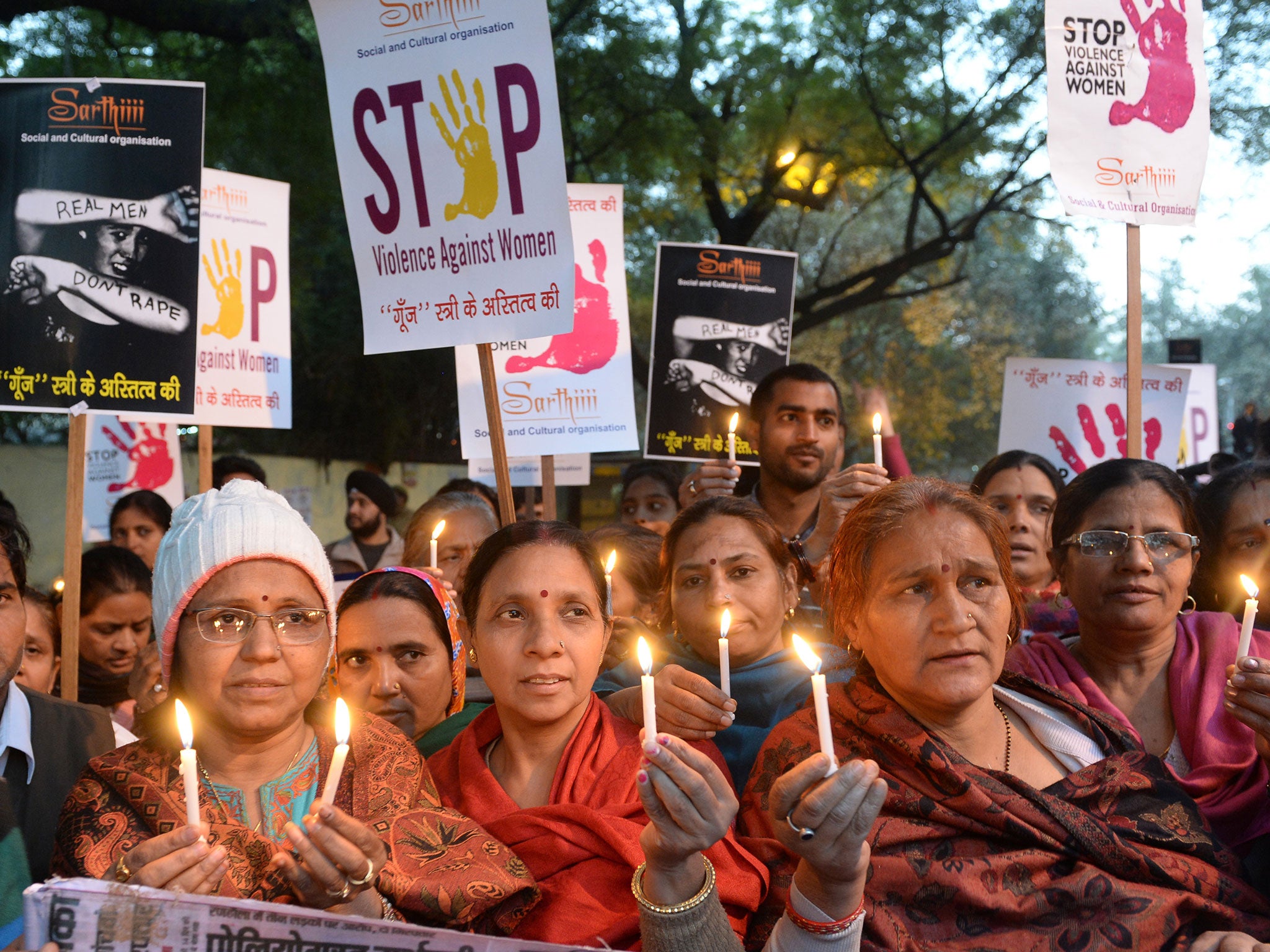Mother of Delhi gang-rape victim Jyoti Singh says 'crime has won' as court allows youngest rapist's release
Delhi’s high court ruled that the release from custody of the sixth perpetrator, aged 17 at the time, could not be challenged

The mother of the woman who was horrifically gang-raped on a Delhi bus in 2012 said “crime has won” as the city’s high court ruled that one of her teenage perpetrators could be released from custody.
The 23-year-old physiotherapy student died of her brutal injuries two weeks after being assaulted by five men and a teenage boy as she travelled home from the cinema with a male friend on 16 December 2012.
The rape of the woman – named publicly as Jyoti Singh for the first time this week by her mother – shocked the world and triggered widespread protests across India advocating protection of women’s rights.
Of her five adult rapists, one died in prison, while the other four received death sentences.
Today, Delhi’s high court ruled that the release from custody of the sixth perpetrator, aged 17 at the time, could not be challenged.
The man – who cannot be named as he was a minor at the time of the attack – is due to be released on Sunday.
Speaking after the legal challenge contesting the released failed, Asha Singh, the victim’s mother, said: “Crime has won. We have lost,” reports CNN.
“Our efforts for three years have failed.”
The court said the rapist could not be kept in custody any longer because he had served the maximum term possible under the law.
The Indian government had asked for the man to remain in custody in a juvenile reform institution.
“The court is no doubt concerned by what has happened and the seriousness of the offence, but the court is also helpless because they have to stay within the confines of the act and the rules and the law,” Anil Soni, a government lawyer, told CNN.
The victim’s parents and activists had wanted the man to stay locked up, believing that he could be a threat to society, reports the BBC.
Dehli-based journalist Meenakshi Bhanja told the news channel that “public memory is fickle”, outside the court today.
“Has anything changed in India? I am sorry to say, ‘no’,” she said.
“Outrage over an incident doesn’t change the DNA of the society.”
Join our commenting forum
Join thought-provoking conversations, follow other Independent readers and see their replies
Comments
Bookmark popover
Removed from bookmarks